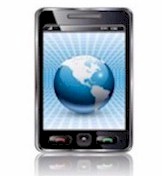|
|
DSC Tech Library
 This section of our technical library presents information and documentation relating to Internet Phone Software and Computer Telephony Integration software and products.
Computer Telephony Integration CTI software is a rich set of phone software library routines that enable application programs to control your phone system.
This comprehensive CTI software lets you increase employee productivity, enhance customer service and reduce costs by combining the capabilities of our PACER phone system with the custom functionality of your Windows, Unix or Web applications.
Data collected by your phone ACD (Automatic Call Distribution) or IVR (Interactive Voice Response) systems can be passed to your existing PC, Unix or Web applications through our phone software.
The PACER predictive dialer can automatically call your customers and pass only connected calls to your agents. With our computer telephony software, your telephone and computer work together to provide cost-saving benefits.
This section of our technical library presents information and documentation relating to Internet Phone Software and Computer Telephony Integration software and products.
Computer Telephony Integration CTI software is a rich set of phone software library routines that enable application programs to control your phone system.
This comprehensive CTI software lets you increase employee productivity, enhance customer service and reduce costs by combining the capabilities of our PACER phone system with the custom functionality of your Windows, Unix or Web applications.
Data collected by your phone ACD (Automatic Call Distribution) or IVR (Interactive Voice Response) systems can be passed to your existing PC, Unix or Web applications through our phone software.
The PACER predictive dialer can automatically call your customers and pass only connected calls to your agents. With our computer telephony software, your telephone and computer work together to provide cost-saving benefits.
In Emergency, Web Phone Options Limited
By ANTHONY McCARTNEY amccartney@tampatrib.com
TAMPA - Switch to an Internet phone and you'll probably save some cash, but you may be giving up a crucial service: 911.
Internet phones, which transmit your voice using broadband cables rather than traditional phone lines, are becoming an enticing option.
The service often is cheap, as little as $14.99 a month. Many providers allow customers to request any U.S. area code for their number, regardless of where they live.
A Tampa customer can have a New York telephone number, and that number can be used from anywhere a high-speed Internet connection is available.
That flexibility poses a serious problem for 911 operators who may have to locate you in an emergency, Hillsborough County 911 Administration Manager Joe Reavy said.
For years, 911 systems across the country have had the ability to track calls made from traditional phones, called land lines, to specific buildings.
Voice Over Internet Protocol providers aren't required to provide 911 service, he said. The result is that if you call 911 and can't tell a call-taker exactly where you are, police or fire crews might not be able to find you.
The potential problems led Pinellas and Hillsborough counties to post warnings to residents on their Web sites.
``We're not discouraging people from using VoIP, but we want consumers to know that their service may not have access to 911,'' said Chuck Freeman, Pinellas County's 911 operations manager, in a statement.
Reavy said anyone considering buying VoIP service needs to have the company clearly explain how it handles 911 calls.
Single Problem, Different Solutions
The problem VoIP phones present is similar to the one that cell phones posed to 911 call centers a few years ago, Reavy said.
Cellular companies and local governments made millions of dollars in upgrades before 911 call centers could pinpoint from where a cell call was placed.
Reavy said VoIP presents a similar problem, and its relative newness means there is no oversight of Internet phone companies. Neither the Federal Communications Commission nor state agencies regulates VoIP companies, which are estimated to have a million customers nationwide.
``Anyone can come in and start that type of service,'' Reavy said.
The two oldest VoIP providers, Vonage and VoicePulse, represent how different companies approach the 911 problem.
Vonage requires customers to register their physical addresses and agree to update whenever they move their phone.
The 911 service is free, but it's optional. Vonage warns customers that the service won't work during power outages, because VoIP systems depend on electricity.
VoicePulse offers no 911 service.
``We make it very clear we don't offer 911,'' said Ravi Sakaria, president and co-founder of VoicePulse.
He said the reason is that most VoIP 911 options are confusing and inadequate. People who dial 911 expect the call-taker to know their physical address, and that technology doesn't exist for VoIP phones, he said.
Sakaria said that he expects technological improvements in the next couple of years will allow VoIP customers to use 911.
Don't Assume It's Optional
For now, Reavy and other 911 administrators advocate that VoIP customers contact their provider and find out how 911 calls are handled.
People are going to have to decide whether they're comfortable with the 911 options that VoIP companies provide, he said.
Just don't assume you won't need 911, he said.
Your Safety appears weekly. If you have an idea or comment, call reporters Valerie Kalfrin or Anthony McCartney at (813) 259-7616.
|


 This section of our technical library presents information and documentation relating to
This section of our technical library presents information and documentation relating to